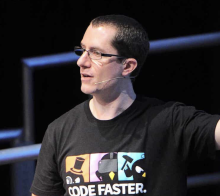If done well, platform engineering can help organizations to deliver software faster, more reliably, and more securely. However, if existing teams of infrastructure, DevOps, and SRE folks are simply rebranded as platform engineers, things tend to turn out less well. Platform engineering done well requires clearly defined goals, well-aligned incentives, and new organizational practices.
Despite what you've heard, DevOps definitely isn't dead -- neither is infrastructure or SRE -- but a new set of best practices is emerging around platform engineering. Join us at QCon to be part of the discussion on how DevOps should continue to evolve. Remember, you can't spell DevOps without “Dev”, and these folks are the core customers of your platform.
In this track, we will explore the people perspective of platform engineering in addition to the technical aspects. We'll draw on the hard-won experiences of our speakers and learn about what it takes to establish, implement, and maintain a successful platform engineering program.
From this track
Building a Successful Platform: Acceleration, Autonomy & Accountability
Tuesday Oct 3 / 10:35AM PDT
Do we build a greenfield platform or do we incrementally centralize common foundations? Do we abstract away all complexity or provide upfront knobs and handles for composability?

Smruti Patel
VP of Engineering @Apollo Graph
Understanding Platforms: What They Are, Why They Work, When to Use Them, How to Build Them
Tuesday Oct 3 / 11:45AM PDT
Technical concepts are something that are thought of, approached, and understood differently across engineers, managers, and executives. Bridging the gaps and providing understanding to a complex and nuanced topic across all three groups can sometimes feel impossible.

Hazel Weakly
Head of Infrastructure & Developer Experience; Director, Haskell Foundation; Infrastructure Witch of Hachyderm
Unconference: Platform Engineering Done Well
Tuesday Oct 3 / 01:35PM PDT
What is an unconference? An unconference is a participant-driven meeting. Attendees come together, bringing their challenges and relying on the experience and know-how of their peers for solutions.
Building Better Platforms with Empathy: Case Studies and Counter-Examples
Tuesday Oct 3 / 02:45PM PDT
Break out of traditional IT roles with your internal platform. Build a product based on customer empathy and real needs to achieve broad adoption.

David Stenglein
Solo Consultant @Missing Mass, LLC with Over 28 Years in Systems, Software, and Consulting
Effective Performance Engineering at Twitter-Scale
Tuesday Oct 3 / 03:55PM PDT
Is performance engineering more craft than machinery? How do you scale something that seems to require both domain-specific context and comprehensive knowledge across multiple levels of the software and hardware stack?

Yao Yue
Founder & Chief Executive Officer @IOP Systems, Platform Engineer, Distributed System Aficionado, Cache Expert
How to Get Tech-Debt on the Roadmap
Tuesday Oct 3 / 05:05PM PDT
Only doing product-led work can lead to an unmaintainable system with lots of downtime. Unfortunately, getting time to work on the things that would prevent that can be challenging.

Ben Hartshorne
Principal Engineer @Honeycomb, Building Operable Systems with Resilience and Business Value





